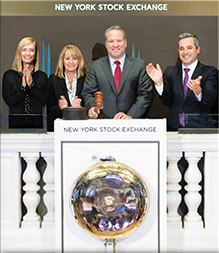Choosing to work with a financial planner is one of the bigger decisions many will face. The hard part starts when choosing what to look for in an advisor and firm. To start, there is not necessarily an agreed upon title when making your search. You could see titles such as financial advisor, financial planner, wealth advisor, investment manager, retirement counselor and so forth. The first step in the process is to determine what you are looking for help with. This could be anything from investment recommendations to a comprehensive financial plan, including estate, tax, insurance, retirement and investment planning. While this may seem like a daunting task, you owe it to yourself and your family to thoroughly review any decision that can have such a large impact on your overall financial life. Here are a few questions to ask any financial planner when you are considering their services.
1.) What are your areas of expertise?
There are a few disciplines that financial planners can excel in. Some specialize in education planning, while others may focus on insurance products, retirement planning, investment recommendations, and other areas of personal finance. Knowing what your main goals are will make it easier to align your needs with an advisor’s strengths. There will obviously be some cross specialization of these areas and you may have multiple goals, but it’s prudent to assess whether the prospective advisor you are interviewing has had experience working with clients that have similar needs and concerns as you. If your biggest investment account is your 401K through your current employer, can they help you with that on an ongoing basis? Having a clear idea of what’s important to you will make it easier to find an advisor that helps fulfill your goals, not you fitting into what the advisor wants.
2.) How are you compensated?
Typically, an advisor’s compensation falls into 1 of 3 categories. A financial advisor may be compensated from commissions on the investments that they recommend. This commission is paid to the advisor by the company whose product is sold. This may or may not be deducted from your investment at the beginning. Important to note any investment recommended to you that pays the advisor a commission only has to be suitable for you but does not require the advisor to act as a fiduciary for you. Advisors can also be “fee-based”. This would indicate that the advisor is compensated from a combination of commission and billing based on assets under management. In addition, an advisor can be a fee only planner. These advisors are compensated based off of a percentage of the assets that they manage, a flat rate, or hourly rate. Using a fee only advisor is the only way to ensure you are working with a fiduciary at all times.
3.) What types of investments are you able to use?
It is important to know what limitations your prospective planner has from an investment choice standpoint. There are insurance companies that are only licensed to do insurance products. That may be useful for your insurance needs, but you have other goals that are better met with a different approach. Also, it’s worth inquiring if the advisor is free to use any fund family they think is best or are they limited to a select group of funds their company deals with. Ideally, your advisor would be able to be independent and have the ability to pick from any of the best available funds and investment options for your specific financial goals.
4.) What type of credentials and licenses do you and your team possess?
Many have heard of designations such as a CFP (Certified Financial Planner) or CPA (Certified Public Accountant), but other licenses like a Series 7, Series 65 and insurance license can give you a good idea of what type of advice a particular advisor usually deals with. With a Series 7, the individual is able to receive commissions from investment products. A Series 65 is associated with a IAR (Investment Advisor Representative), this entitles the individual to work under fee schedules based on a percentage of assets under management, hourly fee, or for a flat fee. On the other hand, an insurance licensed advisor would typically deal with life insurance, annuities and other forms of insurance.
All of this may seem confusing at first, but having a clear idea of your goals and what types of services best fits your needs will help in your advisor search. Choosing to work with a fiduciary is typically the best option, as this requires the advisor to put your needs above their own and their firm’s needs. A good advisor will develop a plan and action items for your various financial goals which will can help you crystallize your ideal financial future.
Click here to read more of my RetireMint articles. Follow me on Twitter or Linkedin.
This document is for educational and informational purposes only and does not constitute an advertisement or solicitation of any securities or investment services provided Mainstay Capital Management, LLC (“MCM”). This document should not be construed as investment, tax, or legal advice, or a solicitation, or a recommendation to engage in any specific strategy. MCM is an independent investment adviser registered with U.S. Securities and Exchange Commission. MCM specializes in workplace savings plan portfolio management and retirement planning advice for active employees and retirees. This document was prepared by MCM primarily based on data collected and analyzed by MCM. The opinions expressed herein are those of MCM alone and are for background purposes only. MCM does not purport the analysis to be full or complete or to constitute investment advice and should not be relied on. In addition, certain information contained herein or utilized to draw the conclusions contained herein has been provided by, or obtained from, third party sources. While MCM believes that such sources are reliable, it cannot guarantee the accuracy of any such information and does not represent that such information is accurate or complete. All materials and information are provided “as is” without any express or implied warranties by MCM. MCM charges its fee based on a percentage of assets under management, which creates an incentive and conflict of interest to increase assets in that account. Furthermore, MCM has two different fee schedules, and therefore has a conflict of interest when assets or accounts move from the lower fee schedule to the higher fee schedule. Opinions expressed are subject to change without notice and are not intended as investment advice or to predict future performance. Consult your financial professional before making any investment decision. Please see MCM’s Form ADV Part 2A and Form CRS for additional information.







